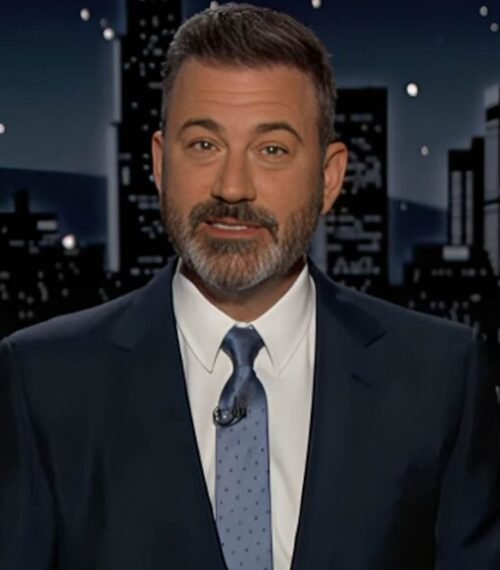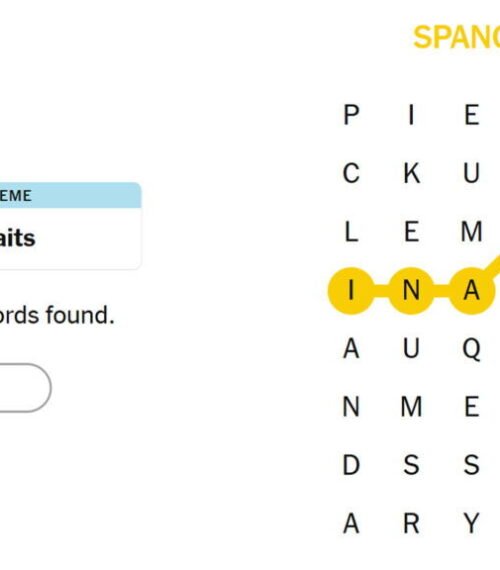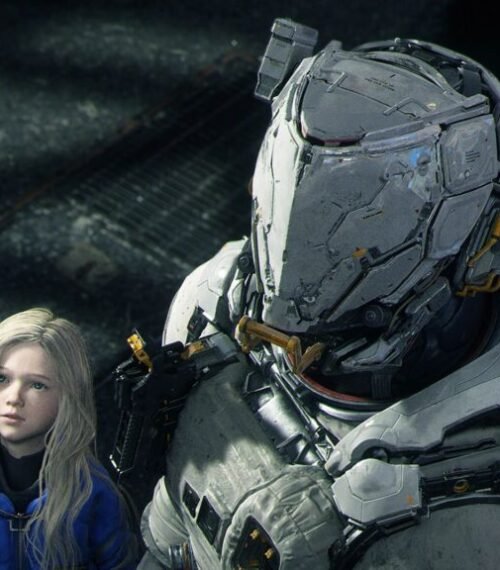Justin Tipping’s new horror film, HIM, released on September 19, has left audiences shaken with its dark mix of sports drama and supernatural terror. The film stars Tyriq Withers as Cameron Cade, a young quarterback whose sports career is cut short by a dangerous brain injury. But, hoping for a second chance, Cam accepts an invitation from his idol, Isaiah White (played by Marlon Wayans), to train at his secluded compound.
But then, what starts as a dream mentorship with the legendary NFL quarterback quickly turns into a nightmare filled with twisted secrets. As the story unfolds, Cam and the audience start to learn that his future is tied to something much darker than football glory. Isaiah isn’t just a mentor, he’s part of a demonic cult led by wealthy team owners, using blood rituals to create the “GOAT” (Greatest of All Time).
That’s when the shocking climax reveals that Cam must choose between accepting the title of becoming “Him” (the next legendary NFL quarterback like Isaiah) or breaking free from a cycle of power, sacrifice, and manipulation. Well, turns out, Cam chooses to break free by killing Isaiah during a ceremonial duel. However, what Cam doesn’t realize is that he has unknowingly absorbed the supernatural power meant to be transferred.
The table contains basic details on HIM:
Which is why Isaiah was smiling at the time of his own death, recognizing Cam as his successor. But later on, when the cult offered Cam a contract to officially become “Him,” the next puppet GOAT under their control, Cam resisted the temptation, despite having absorbed the supernatural power from Isaiah. And as a result, he then slaughters the entire cabal, destroys their ritual, and escapes.
By rejecting the false glory, Cam breaks the cycle of exploitation, choosing freedom over being controlled. The ending leaves him alive, powerful, and free—but no one’s mascot.
The Demonic Cult and the Powerful Metaphor of HIM: Explained
Now, if you look closely into the film, you’ll find out how Isaiah, who appeared to be the biggest threat for most of the movie, isn’t the real villain. The real evil ones are the people above him, the owners, agents, and hidden powerbrokers running the show. Because once Cam defeats Isaiah, the film takes him to a football field where the truth is revealed.
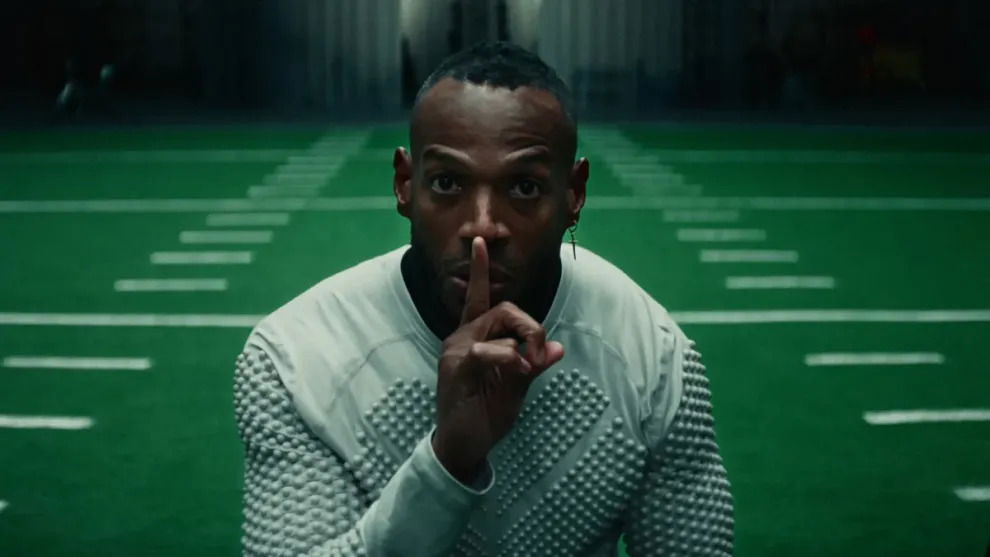

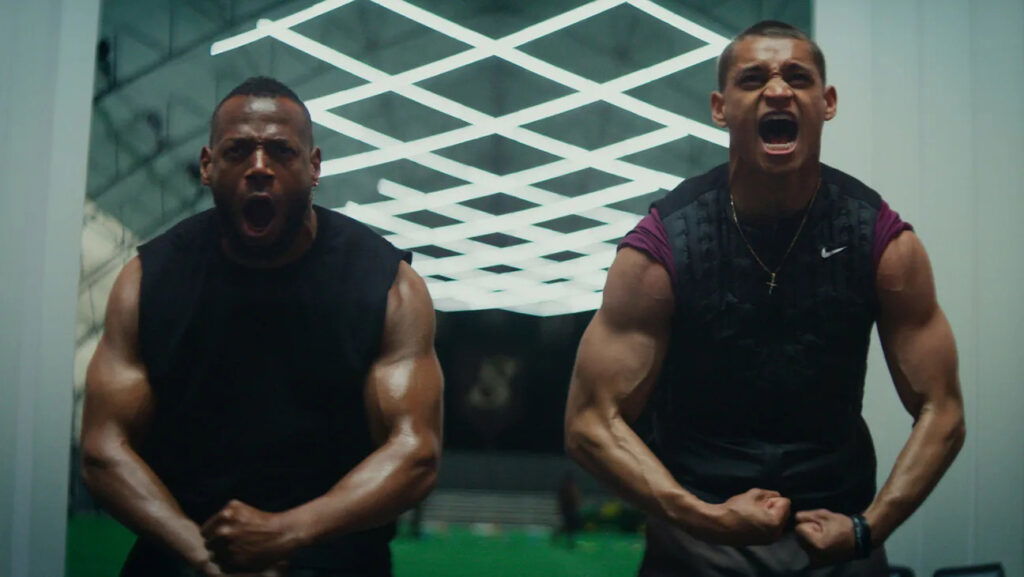


Waiting for him are the wealthy white owners of the San Antonio Saviors, his agent Tom, and Isaiah’s wife, Elsie. These aren’t just businesspeople; they’re part of a demonic cult that has been manipulating the careers and lives of athletes for years. Their blood rituals are designed to create the “GOAT,” passing supernatural strength from one player to another.
And their deeper motive behind this cult is to keep the cycle alive so they can benefit. However, for Cam, it’s a horrifying realization. Because what he thought was a chance to prove himself as a quarterback is actually a trap to bind him into the same system that destroyed Isaiah. This is where a powerful metaphor for the world of young athletes comes to play.
It mirrors the real-life situation where athletes often find themselves entering a labyrinth of wealth, bureaucracy, and contracts that often feel like signing their lives away. Meanwhile, the film exaggerates this heartbreaking reality by showing how some players are willing to make deals with the devil if it means they can achieve riches and greatness.
Additionally, the film also shows how people can become commodities in society by signing off on important contracts and deals, like when the white owners treat Cameron like property, even calling him “boy”, which shows the racial undertones running through the film. It shows how their power doesn’t just come from contracts or money, but also from dehumanizing the players.
In this way, HIM turns the owners into the devil of the film. On a deeper level, this entire sequence acts as a sharp metaphor. HIM isn’t only about supernatural horror; it’s also about the very real exploitation of athletes in professional sports. Just like the cult uses blood rituals, real-world owners use contracts, media, and money to lock players into dangerous systems.
What Is The Real Meaning Behind Cam Refusing to Replace Isaiah as The GOAT?
Meanwhile, amid all the metaphors and parallels shown in the film, the central question of HIM remains whether Cam will accept the role of “Him,” taking Isaiah’s place as the new GOAT. Well, on paper, it looks like the opportunity of a lifetime, with power, fame, and greatness. But beneath the surface, it means losing his identity and becoming a puppet for the cult.

So while the whole story builds up to HIM’s cathartic ending, where Cameron decides whether to go along with the owner’s plan or not, audiences see the story take a turn. Cam ends up killing Isaiah and then uses his sword to dispatch all the team owners. While this feels brutal and violent, it serves as the culmination of Cam’s refusal to become like Isaiah.
This decision carries enormous meaning. Because throughout the film, we see Cam struggling with expectations from his late father, who pushed him toward football, to Isaiah, who pressured him into sacrifices, to the owners who saw him as just another athlete to exploit. Cam’s whole life has been shaped by what others wanted for him.
So eventually, by rejecting the contract, he finally makes his own choice. He doesn’t want greatness if it comes at the cost of who he is. This moment highlights the difference between Cam and Isaiah. Isaiah was willing to sacrifice everything; his humanity, his morals, even his freedom, for the title of GOAT.
Cameron, however, realizes that no amount of glory is worth becoming someone else’s tool. He chooses family, faith, and personal freedom over empty fame. As a result, Cam resists the final temptation and kills everyone on his way to freedom, becoming his own man again instead of becoming a “mascot” for the wealthy to benefit from.
In the end, Cam surely didn’t become the GOAT the owners wanted, but he became something greater: a man who refused to be owned. That’s what makes his ending powerful and meaningful.
Does HIM Movie Have a Post-Credits Scene?
Finally, let’s address the main question: whether you should stay back for the post-credit scene or leave. Well, considering how it has become a trend for blockbuster films to tease something in the credits, people often end up expecting a hidden scene teasing a sequel or a bigger universe in the post-credit scene.
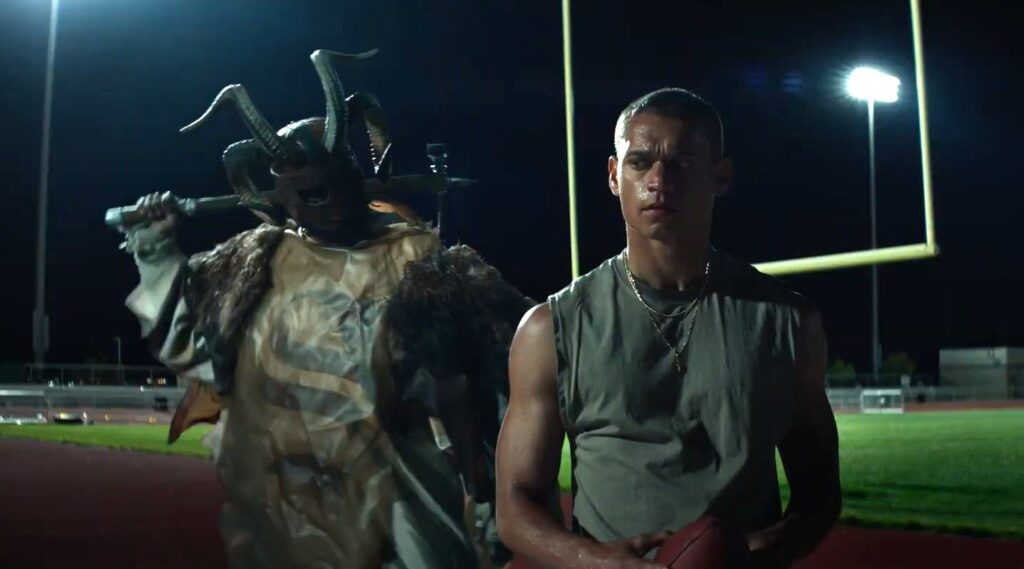
However, I’m sorry to say that HIM does not have a post-credits scene. Once the film ends with Cam walking away free after killing the cult, the story is finished. You can leave the theater without missing anything extra. This choice is important because it shows how self-contained the movie really is. HIM isn’t about setting up a franchise or leaving the door open for spin-offs.
Share your opinions on Justin Tipping’s HIM, and what was your favorite thing about it.
HIM is currently running in US theatres.

